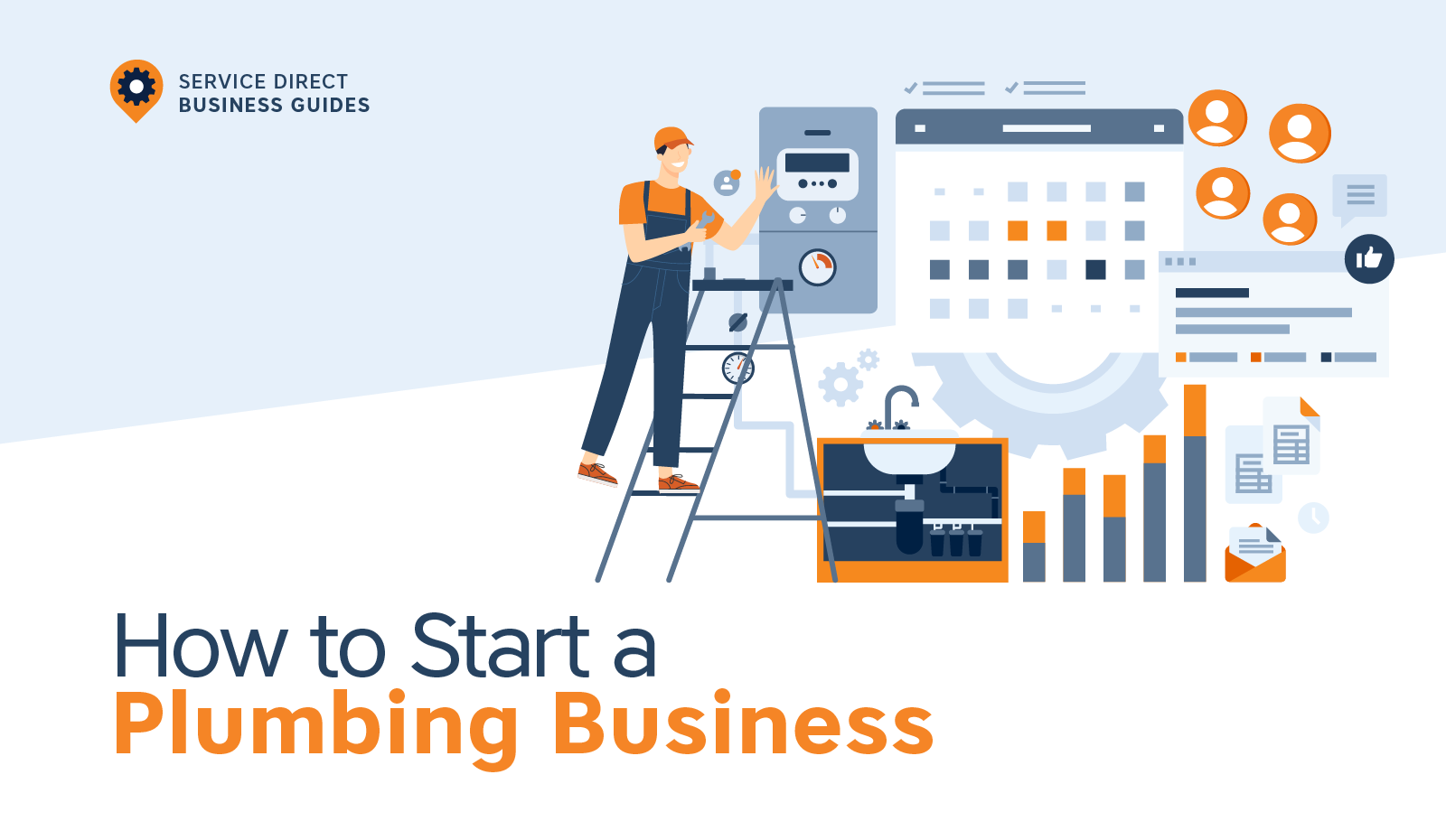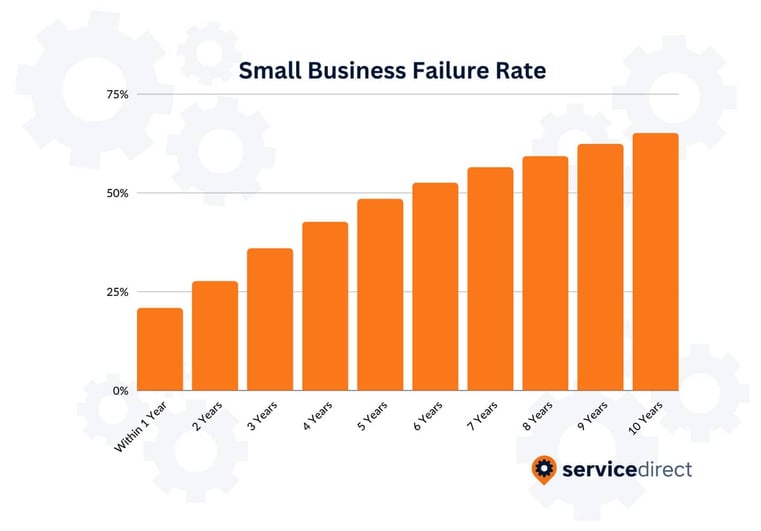How to Start a Plumbing Business
Are you a skilled plumber with a burning desire to turn your expertise into a successful business? Or perhaps you're an aspiring entrepreneur intrigued by the idea of starting a plumbing business from scratch. Either way, you've come to the right place.
This blog is designed to provide you with valuable insights and practical advice that will empower you to take the leap into entrepreneurship confidently. Whether you're looking to escape the constraints of traditional employment or seeking a new challenge in the ever-growing field of plumbing, we've got you covered.
Starting a plumbing business can be an exciting and rewarding endeavor, but it's important to approach it with careful planning and a thorough understanding of the industry.
In this guide, we will walk you through the essential steps and considerations you need to take when starting your own plumbing business. From profitability and common mistakes to licensing and certifications, we’ll discuss everything you need to know to feel confident starting your new plumbing business.
Plumbing Business Profitability
One of the most critical questions aspiring entrepreneurs ask when considering starting a plumbing business is whether they'll actually be able to make money from it. After all, profitability is a key factor in determining the long-term success and sustainability of any business.
So, let's dive into the factors that make owning a plumbing company a potentially lucrative endeavor:
- Steady Demand: Plumbing services are consistently in demand, providing a reliable customer base and opportunities for growth.
- Annual Income: The median pay for plumbers in 2021 was almost $60,000, which is a great starting point, especially with the likelihood that that figure has increased since then.
- Higher Profit Margins: The specialized nature of plumbing work allows for higher profit margins compared to many other service-based businesses.
- Repeat Business and Referrals: Satisfied customers are likely to seek your services again and refer your plumbing business to others, reducing customer acquisition costs and fostering growth.
Profitability in the plumbing industry depends on many factors, including local competition, pricing, overhead costs, and effective management. By implementing sound strategies and providing excellent service, you can maximize your plumbing business's profitability.
Plumbing Services You Should Offer
When starting a plumbing business, it's important to define the types of plumbing services you will offer. By identifying your service offerings, you can more effectively market your business, make accurate financial projections, and cater to the needs of your target market.
Of course, you most likely won’t be able to do it all from scratch. It’s important to research your competition and determine if there is an area where you can carve out a space for your business.
Here are some key plumbing services to consider incorporating into your business at the outset:
- Residential Plumbing: Provide repairs, maintenance, and installations for residential properties, including fixing leaks, installing fixtures, and replacing pipes.
- Commercial Plumbing: Serve businesses and commercial properties with plumbing system installations, maintenance contracts, and specialized repair services.
- Emergency Plumbing: Be available 24/7 to handle urgent situations like burst pipes, sewer line backups, and water heater repairs.
- Drain Cleaning: Clear clogged drains with snaking, hydro jetting, and sewer line inspections.
- Specialty Plumbing: Offer specialized services such as green plumbing solutions, commercial kitchen services, or trenchless pipe repairs.
Remember, it's important to assess your skills, market demand, and competition when selecting the plumbing services to offer. Consider your target market and their specific needs to tailor your services and stand out from the competition.
Certifications, Licenses, and Qualifications for Plumbers
When starting a plumbing company, obtaining the necessary licenses, certifications, and qualifications is essential to operate legally and ensure the quality of your work. They’ll help ensure you are providing quality services as well as protecting yourself from liability.
Here are the key credentials you should consider when establishing your plumbing business:
- Plumbing Contractor License: Obtain a valid plumbing contractor license by meeting experience and educational requirements, passing an exam, and providing insurance.
- Journeyman Plumber License: Become a licensed journeyman plumber before obtaining a contractor license. This requires completing training and apprenticeship programs.
- Master Plumber License: Obtain a master plumber license by meeting experience requirements and passing an examination.
- Trade Certifications: Acquire certifications in specialized areas such as backflow prevention, gas fitting, or green plumbing practices.
- Business Licenses and Registrations: Obtain general business licenses and comply with local regulations.
Obtaining proper and adequate insurance coverage is also a vital step in preparing to launch your plumbing business. Protect your business with general liability, workers' compensation, and commercial vehicle insurance, if necessary.
Remember, the specific licensing requirements and certifications vary by location, so it's essential to research the regulations in your area and comply with all applicable laws. In doing so, you’ll ensure that your plumbing business is set up to thrive.
Common Mistakes to Avoid When Starting a Plumbing Company
When starting a new plumbing business, it's important to be aware of common mistakes and pitfalls that can hinder your success. This way, you’ll prevent your new company from being one of the 20% of businesses that fail in their first year.
Here are some of the most important mistakes to avoid:
- Insufficient Planning: Failing to develop a comprehensive business plan can lead to disorganized operations, inadequate financial projections, and a lack of clear goals.
- Underestimating Costs: Many new plumbing business owners underestimate the costs involved in starting and running a business. It's essential to accurately assess your expenses, including equipment, licensing fees, insurance, and ongoing operational costs.
- Neglecting Marketing: Building a strong brand and marketing your plumbing business is how you attract customers. Invest in a quality website, advertising strategy, and lead generation to increase your visibility and attract customers.
- Lack of Focus on Customer Service: Your reputation among potential customers is a direct result of the quality of your services. Providing exceptional customer service is crucial for securing repeat business and word-of-mouth growth. Neglecting customer service can lead to dissatisfied customers and negative reviews, which can harm your business.
- Not Keeping Up with Industry Trends: Failing to stay updated on industry trends and advancements can hinder your ability to deliver the best possible service. Invest in ongoing training, attend industry conferences, and stay informed about new products and techniques to stay competitive in the market.
- Neglecting Networking and Industry Relationships: Building relationships within the industry can lead to valuable partnerships, referrals, and mentorship opportunities. Attend industry events, join trade organizations, and engage with local business communities to expand your network.
By avoiding these common mistakes, you can position your plumbing business for long-term success. Learn from the experiences of others, stay adaptable, and continuously seek opportunities for improvement. With a strategic approach and a focus on delivering quality service, you can thrive in the plumbing industry.
Step-by-Step Guide to Starting a Plumbing Company
Now that we’ve covered everything you need to know before diving into starting a plumbing company, we can break down the steps you’ll want to take throughout the process.
Keep these 11 steps in mind while starting your plumbing company:
- Research the local plumbing market
- Draft a business plan
- Obtain certifications, qualifications, and training
- Register your plumbing company
- Open a business bank account
- Secure a location and necessary equipment
- Obtain business insurance
- Hire your professional team
- Develop a marketing strategy
- Network with industry professionals
- Start providing plumbing services
For more in-depth details on these steps, be sure to download our thorough step-by-step guide to starting a new plumbing business.
Conclusion
At this point, it’s clear that starting a plumbing business requires careful planning, industry knowledge, and more. But with thorough planning, you’ll be able to ensure you hit the ground running.
Don't forget to prioritize customer service and connect with other local businesses to grow your network. And remember, this blog is a starting point. For more detailed guidance, refer to our comprehensive guide. Good luck on your journey to a successful plumbing business!
RElated articles:
- 5 Industry Trends Every Plumber Needs to Know About
- What to Expect When Buying Plumbing Leads from Service Direct
- How Much Do Service Direct Plumbing Leads Cost?





